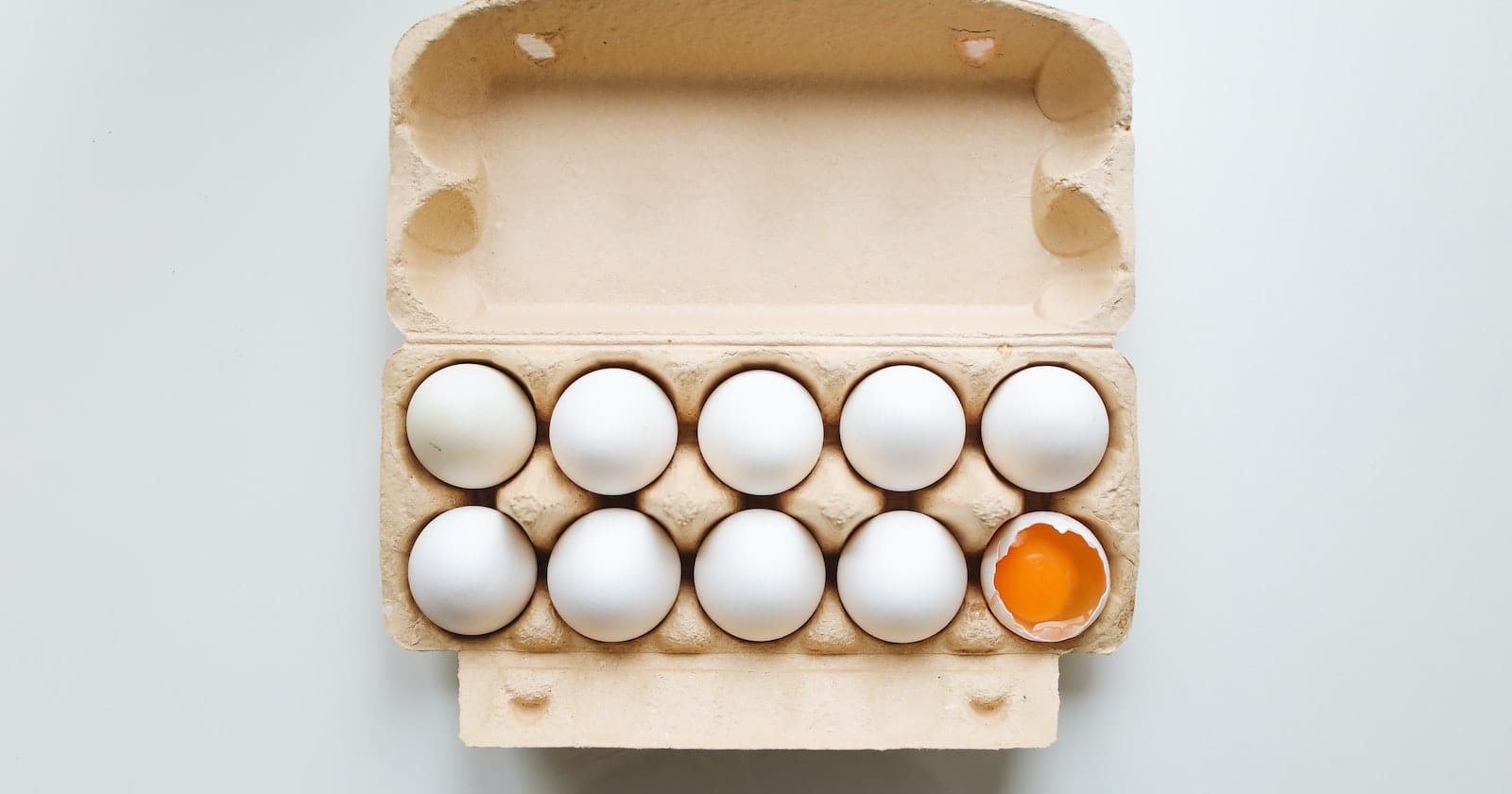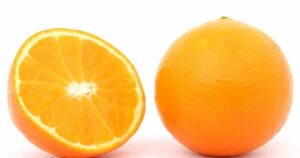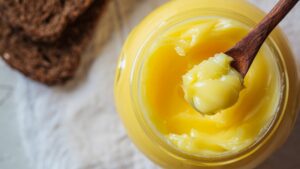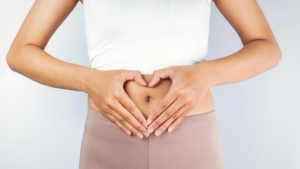Have you ever tried applying egg on your hair? If you have, you are not alone. Many people use egg as a natural remedy for hair care, believing that it can nourish, moisturize, and strengthen their hair. After all, eggs are rich in protein, vitamins, and minerals that are essential for healthy hair growth.
But is applying egg on hair really a good idea? While some people swear by the benefits of egg hair masks, others warn about the potential side effects of this practice. In this blog post, we will explore some of the side effects of applying egg on hair and how to avoid them. We will also suggest some alternatives to egg hair masks that you can try instead.
Greasy Look
One of the most common side effects of applying egg on hair is the greasy look. This happens when you leave the egg on your hair for longer than 30-40 minutes, which is the recommended time for most egg hair masks.
Why does it happen?
When you leave the egg on your hair for too long, there is a high risk of the egg attracting unwanted particles and dirt onto your scalp, resulting in unclean and oily hair. This can make your hair look dull, limp, and lifeless.
How to avoid it?
To avoid this side effect, you should always use a mild shampoo to wash your hair after using an egg hair mask. You should also rinse your hair well with lukewarm water to remove any traces of the egg. Additionally, you should limit the frequency of egg hair masks to once or twice a week, depending on your hair type and condition.
Allergic Reactions
Another potential side effect of applying egg on hair is an allergic reaction. Some people may be allergic to the proteins in eggs, especially albumin, which is found in egg whites. When they apply eggs to their scalp, they may experience itching, swelling, and redness. In severe cases, they may also develop hives, rashes, or breathing difficulties.
Why does it happen?
The allergic reaction happens because your immune system recognizes the proteins in eggs as foreign invaders and tries to fight them off. This causes inflammation and irritation in your skin and scalp.
How to avoid it?
To avoid this side effect, you should always do a patch test before using an egg hair mask. To do this, apply a small amount of the egg mixture to a small area of your skin, such as behind your ear or on your wrist. Wait for 15 minutes and see if there is any reaction. If there is none, you can proceed with the egg hair mask. If there is any sign of irritation or discomfort, you should avoid using eggs on your hair.
If you are highly allergic to eggs, you should not consider this hair treatment at all. You should also avoid using egg whites if you are allergic to albumin. If you have any symptoms of an allergic reaction after using an egg hair mask, you should consult a doctor immediately.
Dry Scalp
Out of all the side effects of applying egg on hair, a rare and uncommon side effect is drying out of the scalp. This can happen due to an over-supply of the necessary nutrients available in the egg, especially in the yolk. The yolk is a nutrient-rich part of the overall egg that contains fats, cholesterol, and lecithin. These substances can clog the pores of your scalp and prevent it from breathing properly.
Another reason why applying egg on hair can dry out your scalp is the accumulation of egg white on your scalp. Egg white has a high pH level that can disrupt the natural balance of your scalp and cause it to become alkaline. This can lead to severe itchiness, flaking, and dandruff.
Why does it happen?
The dry scalp happens because the egg either provides too much or too little moisture to your scalp. Too much moisture can suffocate your scalp and prevent it from producing its own natural oils. Too little moisture can strip away the protective layer of your scalp and expose it to external factors.
How to avoid it?
To avoid this side effect, you should always use a moisturizing conditioner after using an egg hair mask. You should also add some honey or oil to your egg mask to balance out its drying effects. Moreover, you should avoid using hot water when washing your hair as it can strip away the natural oils from your scalp and make it more prone to dryness.
Hard Hair
Another potential side effect of applying egg on hair is hardening of the hair. This can happen due to the protein coagulation that occurs when eggs are exposed to heat or air. When this happens, the proteins in eggs form bonds with each other and with your hair strands, making them stiff and brittle.
Why does it happen?
The hardening of the hair happens because the egg proteins change their structure and lose their flexibility when they are heated or dried. This can make your hair more difficult to style and more prone to damage.
How to avoid it?
To avoid this side effect, you should always use a vinegar rinse after using an egg hair mask. Vinegar has an acidic pH that can neutralize the alkaline pH of eggs and restore the natural softness and shine of your hair. You can also add some lemon juice or yogurt to your egg mask to prevent protein coagulation and keep your hair smooth and silky.
Another tip to avoid hardening of your hair is to comb it gently when it is wet. Wet hair is more fragile and prone to breakage than dry hair. Therefore, you should use a wide-toothed comb or a detangling brush to gently remove any tangles or knots from your wet hair.
Infections
One of the most serious side effects of applying egg on hair is infections. Raw eggs can carry Salmonella bacteria, which can cause diarrhea, fever, and stomach cramps if ingested or absorbed through the skin. This is one of the major reasons why you should never use raw eggs on your hair.
Why does it happen?
The infection happens because the Salmonella bacteria can enter your body through your mouth, nose, eyes, or skin. If you have any cuts, wounds, or infections on your scalp, the bacteria can also enter your bloodstream and cause serious complications.
How to avoid it?
To avoid this side effect, you should always use pasteurized eggs for your hair masks. Pasteurized eggs are eggs that have been heated to a high temperature to kill any harmful bacteria. You can find pasteurized eggs in most grocery stores or online.
You should also wash your hands and utensils thoroughly after handling eggs. You should also discard any leftover egg mixture and not reuse it for another hair mask. Furthermore, you should avoid using egg hair masks if you have any cuts, wounds, or infections on your scalp as they can increase the risk of contamination.
Conclusion
Applying egg on hair can have some benefits, such as moisturizing, oil-removing, and protein-rich. However, it can also have some side effects, such as greasy look, allergic reactions, dry scalp, hard hair, and infections. Therefore, you should be cautious and aware of the risks when using egg hair masks.
If you want to try egg hair masks, you should always do a patch test first and not leave the mask on for too long. You should also wash your hair thoroughly after using the mask and use a conditioner or a vinegar rinse to restore its natural balance. Moreover, you should use pasteurized eggs and practice good hygiene to prevent any infections.
Alternatively, you can try some other natural ingredients for your hair care, such as aloe vera, coconut oil, avocado, banana, or honey. These ingredients are also rich in nutrients and can nourish your hair without causing any side effects. You can also use commercial products that are specially formulated for your hair type and condition.
We hope this blog post has helped you understand the side effects of applying egg on hair and how to avoid them. If you have any questions or comments, please feel free to share them below.



